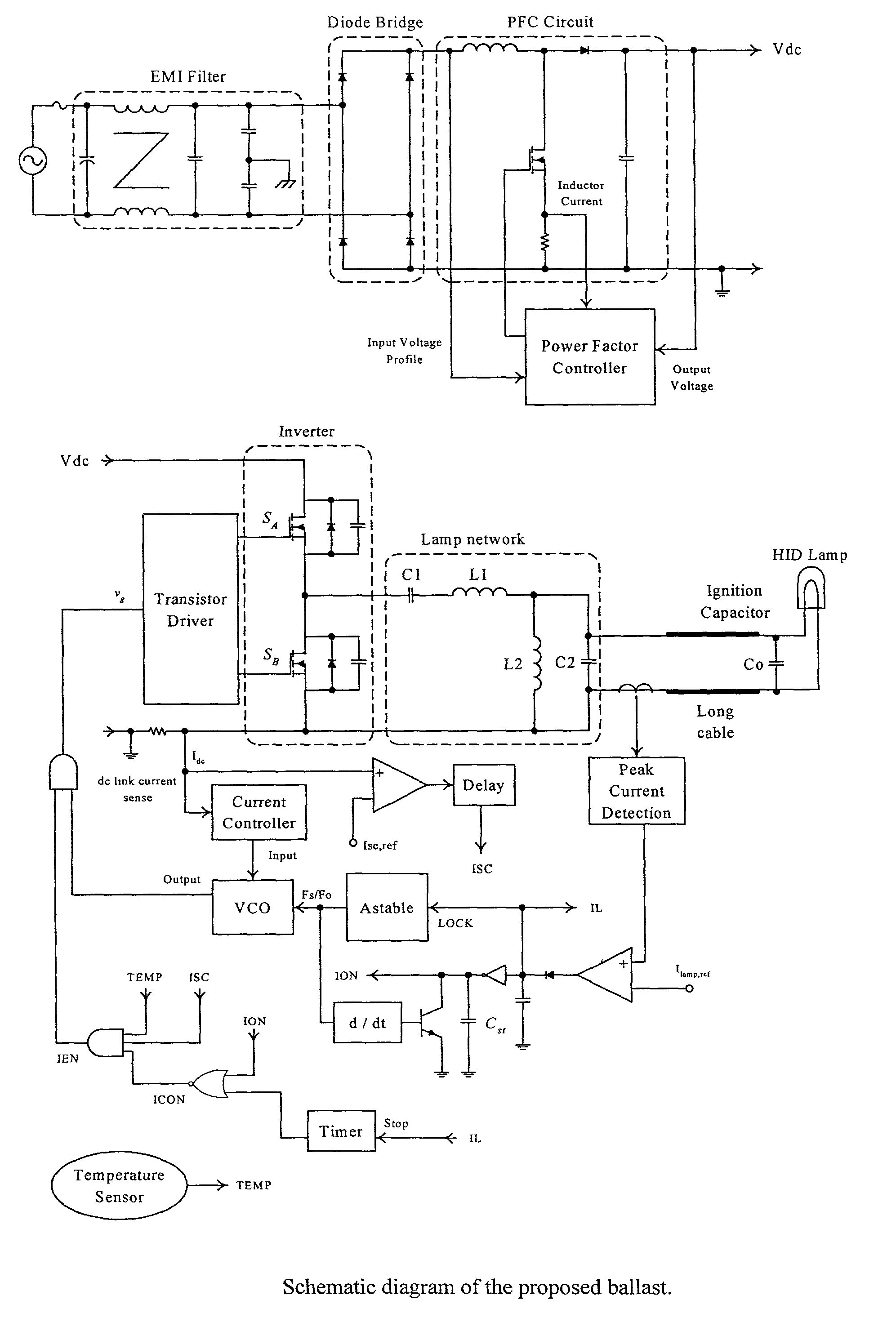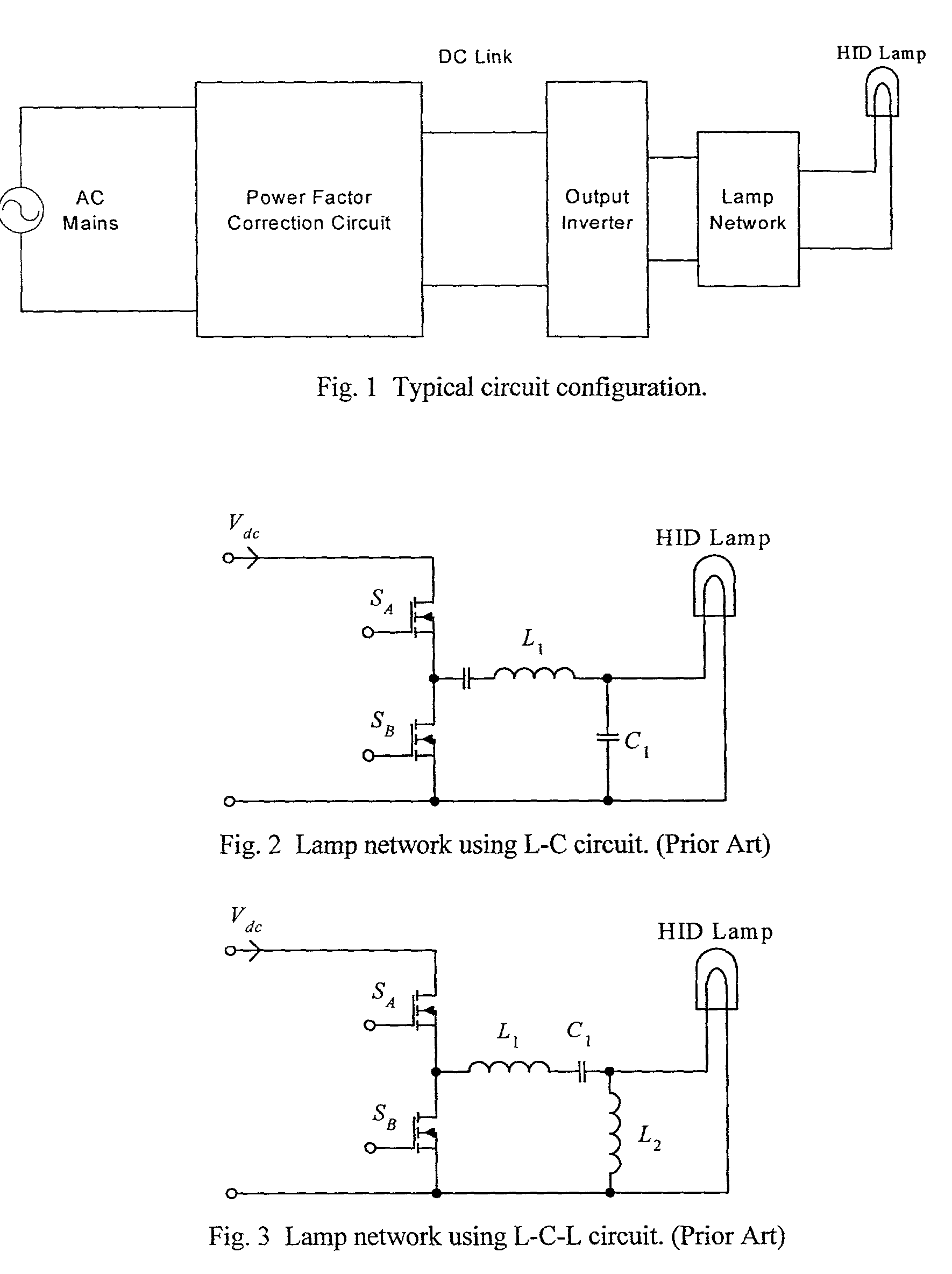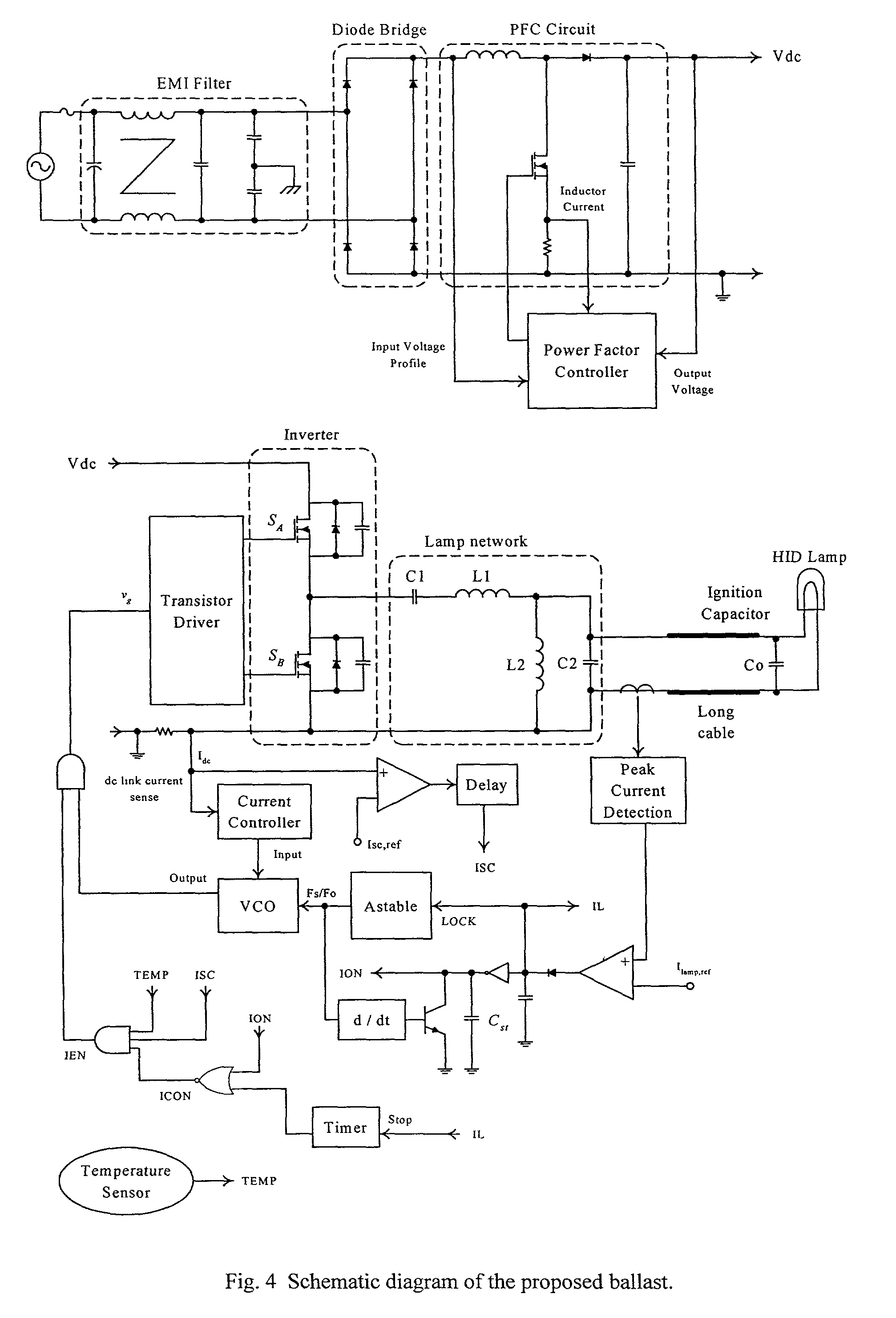Circuit designs and control techniques for high frequency electronic ballasts for high intensity discharge lamps
a technology of electronic ballast and high intensity, which is applied in the direction of electric variable regulation, process and machine control, instruments, etc., can solve the problems of difficult to identify whether the ballast circuit output is short-circuited or the lamp in normal operation, and the discharge arc current is not sufficient, so as to accelerate the warming of the lamp plasma
- Summary
- Abstract
- Description
- Claims
- Application Information
AI Technical Summary
Benefits of technology
Problems solved by technology
Method used
Image
Examples
Embodiment Construction
A. Circuit Schematic of a Ballast for a High Intensity Discharge Lamp
[0032]A circuit schematic of an electronic ballast according to a preferred embodiment of the invention is shown in FIG. 4. The power circuit consists of the following components:[0033]1. Electromagnetic interference (EMI) filter—This is used to suppress the noise, that is generated by the ballast, from getting into the supply mains.[0034]2. Diode bridge—This is a full-wave rectifier and its major function is to rectify the ac mains voltage into a dc voltage.[0035]3. Power factor correction (PFC) circuit—The major function of the PFC circuit is to shape the input current waveform sinusoidally and to keep the input current in phase with the input voltage. The most common circuit topology for the PFC is a boost type dc power converter. This ensures that the input current of the boost converter follows the rectified input voltage. Moreover, a stable dc voltage Vdc is regulated at the output. In this circuit example, t...
PUM
 Login to View More
Login to View More Abstract
Description
Claims
Application Information
 Login to View More
Login to View More - R&D
- Intellectual Property
- Life Sciences
- Materials
- Tech Scout
- Unparalleled Data Quality
- Higher Quality Content
- 60% Fewer Hallucinations
Browse by: Latest US Patents, China's latest patents, Technical Efficacy Thesaurus, Application Domain, Technology Topic, Popular Technical Reports.
© 2025 PatSnap. All rights reserved.Legal|Privacy policy|Modern Slavery Act Transparency Statement|Sitemap|About US| Contact US: help@patsnap.com



